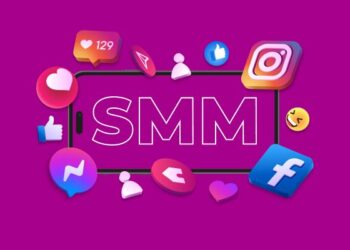In the fast-paced world of digital marketing, businesses are constantly seeking effective strategies to reach their target audience and drive conversions. pay per click site has emerged as a powerful tool in this landscape, offering businesses the opportunity to display their ads prominently across search engines and websites while only paying when users click on their ads. However, the decision to invest in PPC advertising is not one to be taken lightly. In this article, we will explore the ins and outs of PPC advertising, its benefits and drawbacks, and provide insights to help you determine whether it’s the right fit for your business.
Understanding Pay-Per-Click Advertising
At its core, PPC advertising is a model in which advertisers pay a fee each time one of their ads is clicked. These ads are typically displayed on search engine results pages (SERPs) or on websites that participate in advertising networks. The most common platform for PPC advertising is Google Ads, which allows businesses to bid on keywords relevant to their products or services. When users search for these keywords, the ads appear at the top or bottom of the search results page, marked as “sponsored” or “ad.”
The Benefits of PPC Advertising
- Highly Targeted: One of the key advantages of PPC advertising is its ability to target specific audiences based on factors such as demographics, interests, and online behavior. This precision targeting ensures that your ads are shown to users who are most likely to be interested in your offerings, increasing the likelihood of conversion.
- Immediate Results: Unlike organic search engine optimization (SEO), which can take time to generate results, PPC advertising offers instant visibility. Once your ads are set up and approved, they can start appearing in search results immediately, driving traffic to your website and generating leads or sales from day one.
- Measurable ROI: PPC advertising provides detailed analytics that allow you to track the performance of your campaigns in real-time. You can see metrics such as clicks, impressions, conversions, and return on investment (ROI), enabling you to optimize your campaigns for maximum effectiveness.
- Flexible Budgeting: With PPC advertising, you have full control over your budget and can set daily or monthly caps to ensure that you don’t overspend. Additionally, you only pay when someone clicks on your ad, so you can allocate your budget towards the keywords and audience segments that yield the best results.
- Brand Exposure: Even if users don’t click on your ads, they still see your brand name and message, which helps to increase brand awareness and recognition. This can have long-term benefits by keeping your brand top-of-mind when users are ready to make a purchase.
The Drawbacks of PPC Advertising
- Cost: While PPC advertising can deliver excellent ROI when managed effectively, it can also be costly, especially in competitive industries where bidding wars drive up the cost per click. Businesses with limited budgets may find it challenging to compete with larger advertisers for top ad placements.
- Complexity: Setting up and managing online pay per click requires a certain level of expertise and ongoing optimization to achieve optimal results. From keyword research and ad copywriting to bid management and performance tracking, there are many moving parts involved in PPC advertising that can be overwhelming for beginners.
- Click Fraud: Click fraud, or the practice of clicking on ads with malicious intent to drain advertisers’ budgets, is a potential risk with PPC advertising. While platforms like Google Ads have measures in place to detect and prevent click fraud, it can still occur and impact the effectiveness of your campaigns.
- Ad Blindness: As internet users become more accustomed to seeing ads online, they may develop “ad blindness” and subconsciously ignore or overlook PPC ads, reducing their effectiveness. To combat this, advertisers must continuously refresh their ad creatives and experiment with different formats to capture users’ attention.
- Dependency on Platforms: PPC advertising relies on third-party platforms like Google Ads or Bing Ads, which means you’re at the mercy of their policies and algorithms. Any changes to these platforms’ rules or algorithms can impact the performance of your campaigns, requiring constant adaptation and optimization.
Is PPC Advertising Right for Your Business?
Ultimately, whether PPC advertising is right for your business depends on various factors, including your budget, goals, industry, and target audience. Here are some questions to consider when making this decision:
- What are your marketing goals? Are you looking to increase website traffic, generate leads, boost sales, or raise brand awareness? PPC advertising can be effective for all these objectives, but you need to align your goals with the capabilities of the platform.
- Do you have a sufficient budget? While PPC advertising can be cost-effective, it requires a financial investment to compete effectively, especially in competitive markets. Evaluate whether you have the budget to support ongoing PPC campaigns and optimize them for success.
- How competitive is your industry? In highly competitive industries, the cost per click can be prohibitively high, making it challenging for smaller businesses to compete. Conduct thorough keyword research and competitive analysis to assess the landscape before diving into PPC advertising.
- Do you have the expertise to manage PPC campaigns? While PPC platforms provide tools and resources to help you get started, managing successful campaigns requires a deep understanding of keyword research, ad copywriting, bid management, and performance analysis. Consider whether you have the in-house expertise or are willing to invest in training or hiring professionals to manage your PPC campaigns effectively.
- What is your target audience’s online behavior? If your target audience is actively searching for products or services like yours online, PPC advertising can be an effective way to capture their attention at the moment of intent. However, if your audience is not actively searching or is unlikely to click on ads, you may need to explore alternative marketing channels.
Conclusion
Pay-per-click advertising offers businesses a powerful way to reach their target audience, drive traffic to their websites, and achieve their marketing goals. However, it’s not without its challenges and requires careful planning, management, and optimization to succeed. By weighing the benefits and drawbacks of PPC advertising and considering your business’s unique circumstances, you can make an informed decision about whether it’s the right fit for your marketing strategy. Whether you choose to invest in PPC advertising or explore other avenues, remember that digital marketing is an ever-evolving landscape, and staying adaptable and open to experimentation is key to long-term success.





